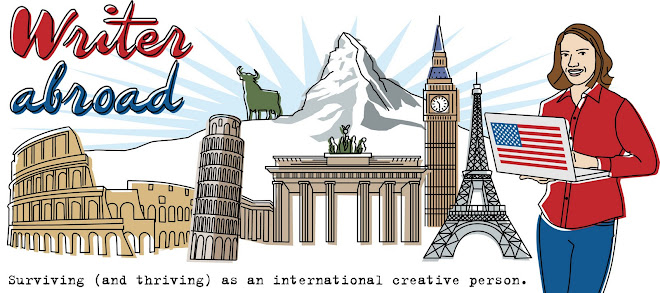Often at the workshops
Writer Abroad has attended, writers ask why they should keep a blog. Below are
five good reasons.
One: It builds a readership
Does anyone read your
writing? A blog gives you a good way to find and build a readership—just try
not to become addicted to Google Analytics in the process.
Two: It builds a platform
A blog can be a great
way to build a writing platform. Although it may take several years to create
enough content to finally arrive at that ever so significant 15,000+ views a
month (the number Writer Abroad has learned most publishers deem worthy), it
can be a fun journey getting there if you enjoy blogging.
Three: It gets you writing assignments
Good blogs are usually
single minded, meaning that they focus on one topic. This can help prove you’re
an expert while also showing off your writing style. If your blog comes up in
an editor’s search results when they are looking for someone to write an
article on a certain topic, you might just land an assignment—no pitch
necessary.
Four: It keeps you writing
Good writers usually
treat writing a blog as part of their job. Therefore, they typically post on a
certain schedule—once a week, twice a week, etc. Having a blog means always
having a writing assignment and a deadline—so if practice makes perfect, you’ll
really improve your writing if you take blogging seriously.
Five: It helps you network
You never know who you
are going to meet through your blog. Who will find you? And more importantly,
who will your blog give you an excuse to contact?
If you’re a writer with a blog, how has it
helped your writing career?




